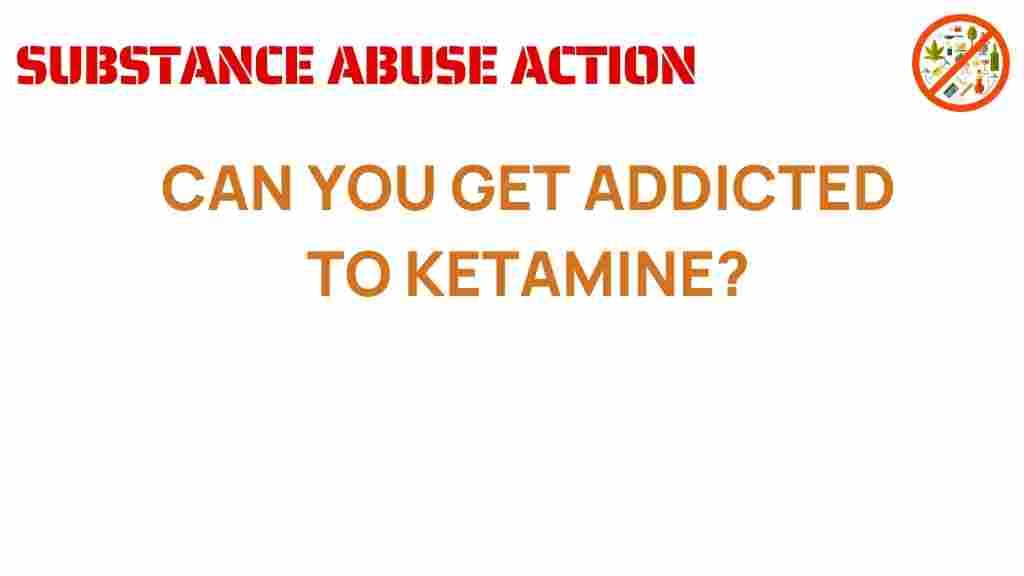Unveiling the Hidden Risks: Can You Get Addicted to Ketamine?
Ketamines have gained attention for their potential benefits in treating mental health issues, particularly depression. However, with its increasing use, especially in recreational settings, questions about ketamine addiction and its associated risks have surfaced. In this comprehensive article, we will explore the relationship between ketamine and addiction, mental health implications, treatment options, and the risks involved in both therapeutic and recreational use.
Understanding Ketamine
Ketamine is a powerful anesthetic that has been used in medical settings for decades. In recent years, it has emerged as a treatment option for severe depression and other mental health disorders. When administered in controlled doses, ketamine can provide rapid relief from depressive symptoms. However, misuse can lead to serious consequences.
What Is Addiction?
Addiction is characterized by compulsive drug seeking and use, despite harmful consequences. It can involve both physical and psychological dependence. Understanding how ketamine fits into the context of addiction is crucial, especially as it becomes more popular in both medical and recreational environments.
The Rise of Recreational Use
While ketamine is primarily used in medical settings, its recreational use has surged. Many individuals seek it for its dissociative effects, which can lead to feelings of euphoria and detachment. However, the recreational use of ketamine carries inherent risks, particularly regarding addiction.
Risks of Ketamine Use
The use of ketamine, whether for medical or recreational purposes, poses several risks:
- Dependency: Regular use can lead to a psychological craving for the substance.
- Health Issues: Long-term use can result in bladder problems, liver damage, and cognitive impairments.
- Overdose: Taking too much ketamine can lead to dangerous health situations, including respiratory failure.
- Mental Health Effects: Misuse can exacerbate underlying mental health issues, leading to more severe depression or anxiety.
Ketamine and Mental Health
Ketamine has shown promise in treating various mental health disorders, particularly treatment-resistant depression. Studies indicate that it can produce rapid antidepressant effects, often within hours, compared to traditional antidepressants that can take weeks. However, its potential for addiction complicates its use. Understanding the balance between therapeutic benefits and the risk of substance abuse is critical.
Identifying Ketamine Addiction
Recognizing the signs of ketamine addiction is essential for early intervention. Some common signs include:
- Increased tolerance to the drug, requiring larger doses to achieve the same effects.
- Experiencing withdrawal symptoms when not using ketamine.
- Neglecting responsibilities at work, school, or home due to drug use.
- Continuing to use ketamine despite knowing the negative consequences.
Treatment Options for Ketamine Addiction
If you or someone you know is struggling with ketamine addiction, several treatment options are available:
- Detoxification: This is often the first step, where the individual is monitored as the drug is cleared from their system.
- Counseling and Therapy: Behavioral therapy can help address the underlying issues related to addiction and develop coping strategies.
- Support Groups: Joining groups like Narcotics Anonymous can provide community support and shared experiences.
- Medication: In some cases, medications may be prescribed to help manage withdrawal symptoms or co-occurring mental health issues.
Steps to Recovery from Ketamine Addiction
Recovery from ketamine addiction is a journey that requires commitment and support. Here are steps that can help guide the process:
- Acknowledge the Problem: The first step is recognizing that there is an issue with ketamine use.
- Seek Professional Help: Consulting with a healthcare provider or addiction specialist can provide tailored treatment options.
- Build a Support System: Involving friends, family, or support groups can provide necessary encouragement.
- Establish Healthy Habits: Engaging in physical activity, proper nutrition, and mindfulness can support overall well-being.
- Set Goals: Creating achievable goals can help maintain focus and motivation throughout the recovery process.
Troubleshooting Tips for Managing Ketamine Use
If you find yourself using ketamine or struggling with its effects, consider these tips:
- Limit Access: Avoid situations where ketamine is readily available.
- Identify Triggers: Recognize situations or emotions that prompt the desire to use ketamine and develop coping strategies.
- Seek Alternatives: Explore other activities or treatments for managing stress or depression that do not involve drug use.
- Stay Informed: Educate yourself about the risks associated with ketamine use to make informed decisions.
Conclusion
While ketamine holds promise as a treatment for severe depression and other mental health disorders, its potential for addiction cannot be overlooked. The risks associated with both medical and recreational use are significant, and understanding these risks is crucial for anyone considering ketamine as a treatment or who is using it recreationally. If you or someone you know is struggling with ketamine addiction, seeking help is a vital step toward recovery.
For more information on addiction and recovery resources, visit Addiction Resource or consult a healthcare professional for guidance.
If you want to learn more about the mental health implications of various substances, check out our article on Substance Abuse Awareness.
This article is in the category Addiction and created by SubstanceAbuseAction Team
